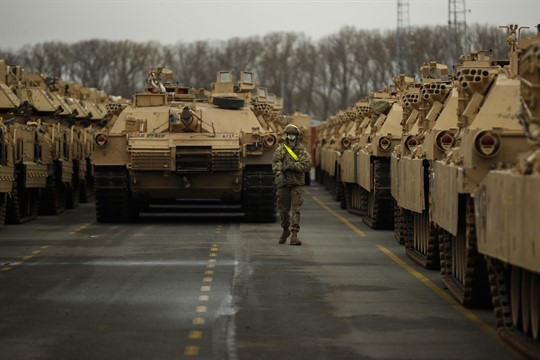The U.S. Faces Hard Choices on Strategic Ambiguity in Europe and Asia

Russia’s ongoing military buildup along its border with Ukraine has cast into sharp relief the debate about how the United States, and its allies, can most effectively ensure security in the no man’s land lying beyond NATO’s eastern perimeter. Meanwhile, China’s mounting campaign of military pressure and intimidation against Taiwan is leading some observers to question the strength of U.S. commitments to the island. Though coordination between Russia and China on these efforts is likely limited at best, their attempts to bully Ukraine and Taiwan raise a common dilemma for Washington, one liable to become more pronounced and widespread in the new era of strategic competition among rival powers.
Neither Ukraine nor Taiwan is a formal U.S. ally, though Washington has committed itself in various ways to help secure them against their larger neighbors. The Taiwan Relations Act requires the White House and Congress to undertake “appropriate action” in the event of a threat to Taiwan’s security, while a recently signed U.S.-Ukraine Charter on Strategic Partnership commits Washington to “maintaining sanctions … and applying other relevant measures [emphasis added]” until Russia restores Ukraine’s territorial integrity.
